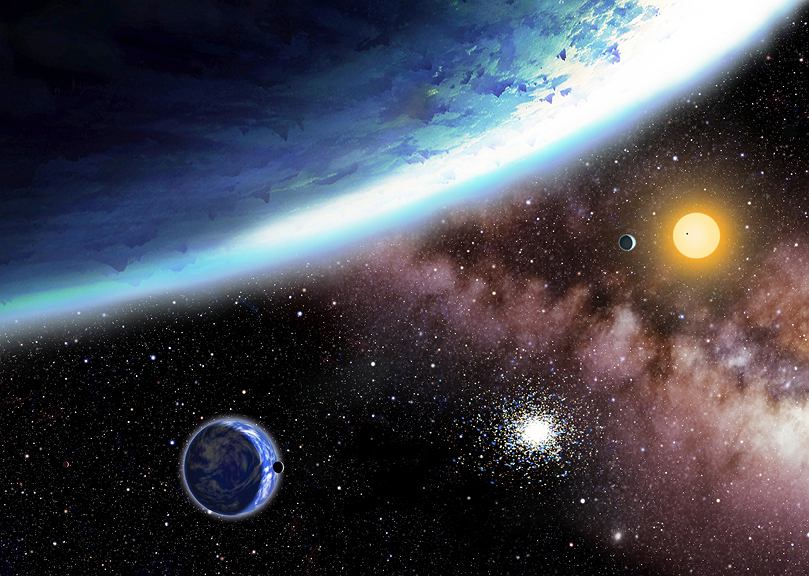Alien life should simply must exist out there somewhere in the universe. It's a simple numbers game, and according to top astronomers, the odds are definitely in our favor. Exoplanets, the term used to refer to all planets that exist outside our own solar system, aren't exactly in short supply.
As of December, NASA has confirmed the existence of well over 3,000 exoplanets that hadn't been previously spotted, and the rate at which planet-bearing systems are being discovered is only going to rise in the coming years as identification technology (including methods aided by artificial intelligence) grows in sophistication.
This is to say nothing of the ways that amateur astronomers are helping to explore the universe, such as the minigame in the popular spacefaring MMO EVE Online that allows players to search through real-life data to try to find new planets in return for in-game rewards.
The ongoing efforts to catalog all the exoplanets in the known universe aren't going to conclude any time in the next few centuries, based on current estimates of the sheer number of planets out there to be spotted.
"There are hundreds of billions of planets in the Milky Way galaxy," says Jean-Luc Margot, professor and chair of UCLA's Earth, Planetary, and Space Sciences department, and documenting them all, at a rate of one per second, will take over 3,000 years. This is to say nothing of all the exoplanets that exist outside of our galaxy, or even outside our own universe.
Speaking of the "two trillion" or more galaxies that exist outside the Milky Way, Margot has an appropriately Biblical analogy to the sheer number of potentially inhabited worlds that exist across all of creation: "It's comparable to the number of grains of dry sand on all the beaches on Earth."
Thus, while we may not have found any evidence of life on Mars (that we didn't put there ourselves).
While many of the experts are still speculating on why that we haven't been contacted by intelligent aliens from further afield just yet, considering the sheer size and scope of the universe, it's safe to assume that somewhere out there, life must have formed in a way that looks similar to our own species.
The challenge, then, is finding our kindred aliens. The biggest challenge is finding that single grain of sand across the beach of the universe that holds the possibility of extra-terrestrial life.
Considering that no giant alien invasion force has swarmed down on our planet yet, it's safe to assume that a more technologically advanced species doesn't exist within easy commuting range of our home (or, at least, not one that cares about our constant annoying broadcasts).
It's entirely possible that life is a far more rare occurrence than we'd like to believe, and that we're so far away from other species like our own that we're never going to see evidence of them in our species' entire lifetime. Or, perhaps we're misinterpreting the signals that aliens are sending to us.
What if a constantly flickering star on the other side of the galaxy actually contains a coded message, sent out by our distant cousins in a desperate attempt to grab our attention?
This is assuming that faraway aliens actually want to talk to us at all. They might have their own problems, like being covered in a thick layer of ice and snow that forces them to ignore the existence of a universe in the first place. Perhaps we're the only species in our vicinity that even cares about exploring beyond our own world.
Whatever's going on out there, one thing is clear: there probably is something akin to alien life somewhere in the universe, but given the sheer size of the cosmos, we're unlikely to spot foreign living creatures unless we're very, very lucky.
Source





